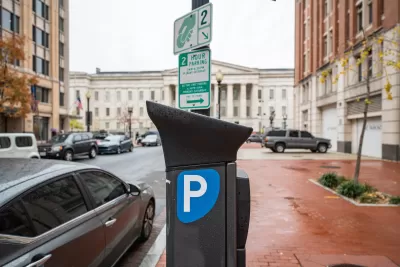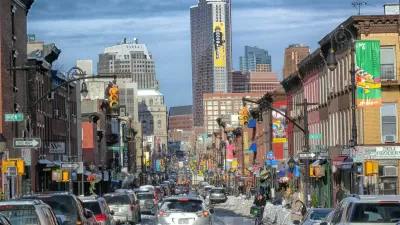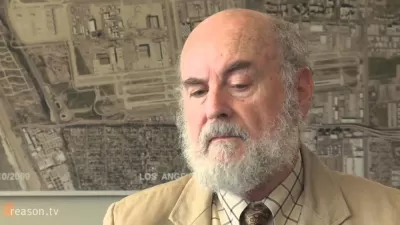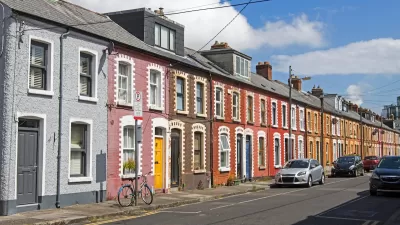The District is losing out on hundreds of thousands in potential revenue while encouraging residents to store cars on valuable public land.

In an opinion piece in Greater Greater Washington, Joshua Peacock argues that “Street parking in DC is way too cheap,” and taxpayers cover much of the cost.
Charging only token amounts for extremely valuable land creates an incentive for residents and commuters to drive their personal vehicles into the city and store them, using DC’s land in ways that make the streets less affordable, less welcoming, and more congested.
Peacock lays out the landscape: “Released in December 2021, moveDC reported that DC had 150,000 Residential Parking Permit (RPP) spaces, 20,000 metered spaces and 230,000 other spaces.” The construction costs for one parking space is, on average, $8,600. Looking at residential parking permits, Peacock notes that “At the current charge of $50/year for a residential parking permit, it would take 172 years to cover the cost of constructing that space.”
Meanwhile, the District’s highly coveted 20,000 metered parking spaces cost $2.30 per hour, which would add up to $14,352 per space per year if permit spots were priced the same. Private parking costs around $2,700 per year. Peacock makes the case that the $50 residential parking permits are woefully underpriced, meaning that “DC taxpayers are subsidizing 150,000 RPP spaces throughout the city to the tune of up to $558 per resident (all 712,000 of us in the 2020 census), per year.”
Peacock doesn’t recommend a sudden spike in permit costs, but suggests some steps the District could take to start remedying the inequitable situation, such as rewarding residents who do not use RPPs through ‘parking buyouts’ or charging for permits based on vehicle size and weight.
Echoing Donald Shoup, Peacock reminds readers, “There is never such a thing as free parking.”
FULL STORY: Street parking in DC is way too cheap

Maui's Vacation Rental Debate Turns Ugly
Verbal attacks, misinformation campaigns and fistfights plague a high-stakes debate to convert thousands of vacation rentals into long-term housing.

Planetizen Federal Action Tracker
A weekly monitor of how Trump’s orders and actions are impacting planners and planning in America.

In Urban Planning, AI Prompting Could be the New Design Thinking
Creativity has long been key to great urban design. What if we see AI as our new creative partner?

King County Supportive Housing Program Offers Hope for Unhoused Residents
The county is taking a ‘Housing First’ approach that prioritizes getting people into housing, then offering wraparound supportive services.

Researchers Use AI to Get Clearer Picture of US Housing
Analysts are using artificial intelligence to supercharge their research by allowing them to comb through data faster. Though these AI tools can be error prone, they save time and housing researchers are optimistic about the future.

Making Shared Micromobility More Inclusive
Cities and shared mobility system operators can do more to include people with disabilities in planning and operations, per a new report.
Urban Design for Planners 1: Software Tools
This six-course series explores essential urban design concepts using open source software and equips planners with the tools they need to participate fully in the urban design process.
Planning for Universal Design
Learn the tools for implementing Universal Design in planning regulations.
planning NEXT
Appalachian Highlands Housing Partners
Mpact (founded as Rail~Volution)
City of Camden Redevelopment Agency
City of Astoria
City of Portland
City of Laramie





























